Related Research Articles

Adam Smith was a Scottish economist and philosopher who was a pioneer in the thinking of political economy and key figure during the Scottish Enlightenment. Seen by some as "The Father of Economics" or "The Father of Capitalism", he wrote two classic works, The Theory of Moral Sentiments (1759) and An Inquiry into the Nature and Causes of the Wealth of Nations (1776). The latter, often abbreviated as The Wealth of Nations, is considered his magnum opus and the first modern work that treats economics as a comprehensive system and as an academic discipline. Smith refuses to explain the distribution of wealth and power in terms of God's will and instead appeals to natural, political, social, economic, legal, environmental and technological factors and the interactions among them. Among other economic theories, the work introduced Smith's idea of absolute advantage.

Carl Menger von Wolfensgrün was an Austrian economist and the founder of the Austrian School of economics. Menger contributed to the development of the theories of marginalism and marginal utility, which rejected cost-of-production theory of value, such as developed by the classical economists such as Adam Smith and David Ricardo. As a departure from such, he would go on to call his resultant perspective, the subjective theory of value.
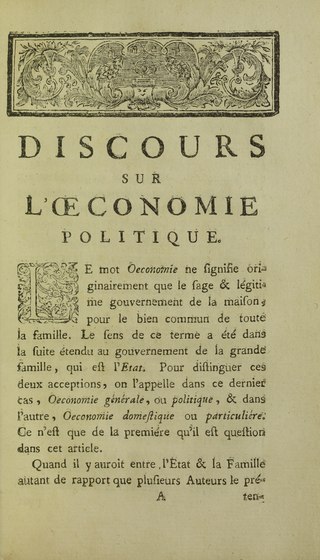
Political economy is a branch of political science and economics studying economic systems and their governance by political systems. Widely studied phenomena within the discipline are systems such as labour markets and financial markets, as well as phenomena such as growth, distribution, inequality, and trade, and how these are shaped by institutions, laws, and government policy. Originating in the 16th century, it is the precursor to the modern discipline of economics. Political economy in its modern form is considered an interdisciplinary field, drawing on theory from both political science and modern economics.
Classical economics, classical political economy, or Smithian economics is a school of thought in political economy that flourished, primarily in Britain, in the late 18th and early-to-mid-19th century. Its main thinkers are held to be Adam Smith, Jean-Baptiste Say, David Ricardo, Thomas Robert Malthus, and John Stuart Mill. These economists produced a theory of market economies as largely self-regulating systems, governed by natural laws of production and exchange.
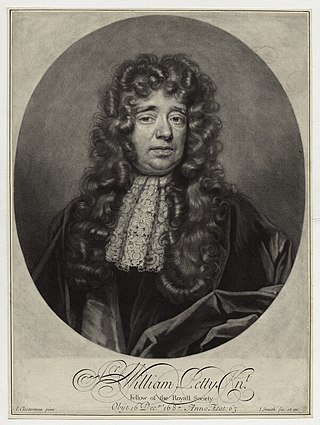
Sir William Petty was an English economist, physician, scientist and philosopher. He first became prominent serving Oliver Cromwell and the Commonwealth in Ireland. He developed efficient methods to survey the land that was to be confiscated and given to Cromwell's soldiers. He also remained a significant figure under King Charles II and King James II, as did many others who had served Cromwell.
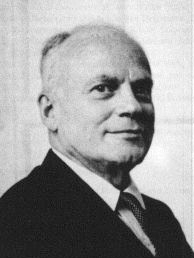
Jacob Viner was a Canadian economist and is considered with Frank Knight and Henry Simons to be one of the "inspiring" mentors of the early Chicago school of economics in the 1930s: he was one of the leading figures of the Chicago faculty. Paul Samuelson named Viner as one of the several "American saints in economics" born after 1860. He was an important figure in the field of political economy.
Ronald Lindley Meek was a Marxian economist and social scientist known especially for his scholarly studies of classical political economy and the labour theory of value. During the 1960s and 1970s, his writings had a strong influence on the Western academic discussion about Marx's economic theory.

Professor emeritus Hugh Stretton was an Australian historian who wrote books on politics, urban planning and economics, and a Rhodes Scholar. He was a key figure in the development and implementation of government policies affecting cities, particularly during the Whitlam government.
The English historical school of economics, although not nearly as famous as its German counterpart, sought a return of inductive methods in economics, following the triumph of the deductive approach of David Ricardo in the early 19th century. The school considered itself the intellectual heirs of past figures who had emphasised empiricism and induction, such as Francis Bacon and Adam Smith. Included in this school are William Whewell, Richard Jones, Thomas Edward Cliffe Leslie, Walter Bagehot, Thorold Rogers, Arnold Toynbee, William Cunningham, and William Ashley.
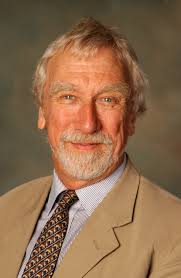
Charles David Throsby AO is an Australian economist. He is especially well known as a cultural economist. His book Economics and Culture (2001) has become a standard reference work in the field. In addition to the performing arts, Throsby's research and writing has covered the economic role of artists, the economics of public intervention in arts markets, cultural development, cultural policy, heritage issues, and sustainability of cultural processes. He has also written extensively on the theory of public goods and the economics of higher education.

Alan George Lewers Shaw was an Australian historian and author of several text books and historiographies on Australian and Victorian history. He taught at the University of Melbourne and the University of Sydney, and was professor of history at Monash University from 1964 until his retirement in 1981.
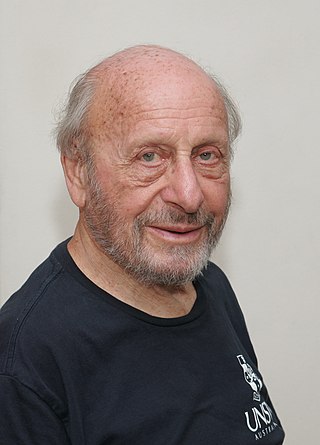
Geoffrey Colin Harcourt was an Australian academic economist and leading member of the post-Keynesian school. He studied at the University of Melbourne and then at King's College, Cambridge.
Ian Steedman was for many years a professor of economics at the University of Manchester before moving down the road to Manchester Metropolitan University. He retired from there at the end of 2006, but was appointed as an emeritus professor.

Franklin "Frank" J.B. Stilwell is an Australian political economist and Professor Emeritus. He is known for establishing, with Evan Jones, Gavan Butler, Margaret Power, Debesh Bhattacharya, Geelum Simpson-Lee and Ted Wheelwright, an independent political economy department at the University of Sydney. His research interests include theories of political economy, inequality, urbanization, and regional development, Australian economic policy and the nature of work. His textbooks on the subject are standard teaching material for all university students in Australia studying the field of Political Economy. Stilwell's contribution to heterodox economics makes him a noteworthy figure of the Australian New Left.
Charles Henry Hull was an American economist and historian. He worked at Cornell University, in Ithaca, New York. In 1900, he was appointed professor of American History.

The Economic Writings of Sir William Petty is a book with texts, written by William Petty (1623-1687), and published in 1899 by Charles Henry Hull (1864-1936), in two volumes. The Economic Writings were published together with an introduction about the life and work of William Petty, and did also contain Natural and Political Observations upon the Bills of Mortality, by John Graunt.

"Petty's Place in the History of Economic Theory" is an academic article, written by Charles Henry Hull and published in The Quarterly Journal of Economics in 1900.
Donald Rutherford (1942–2023) was a British economist and Lecturer in Economics at the University of Edinburgh. He was educated at The Queen's College, Oxford and was Lecturer (1969–2009) and subsequently honorary lecturer at the College. Rutherford is known for his writings on the history of economic thought and Scottish economics.
Alexander John Millmow is an Australian economic historian, journalist, and author. Formerly an associate professor at Federation University Australia, he is an honorary research fellow at Federation University and at Australian National University, and is president of the History of Economic Thought Society of Australia.
Bruce J. McFarlane (1936–2022) was an Australian economist.
References
- 1 2 "Curriculum Vitae Tony Aspromourgos". University of Sydney. Retrieved 9 January 2019.
- ↑ "Fellows details: Professor Tony Aspromourgos". Academy of the Social Sciences in Australia (ASSA). Retrieved 10 January 2019.
- ↑ "Tony Aspromourgos". Return on Academic Research (ROARS). Retrieved 10 January 2019.
- ↑ "Aspromourgos". European Society for the History of Economic Thought (ESHET). Retrieved 10 January 2019.
- ↑ review by Salim Rashid in Journal of the History of Economic Thought; review in Capital & Class.
- ↑ review by Gianni Vaggi in History of Economic Ideas.